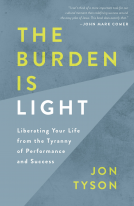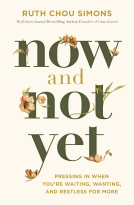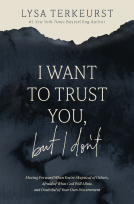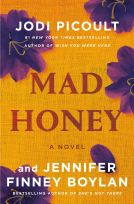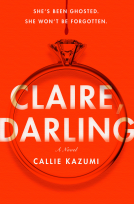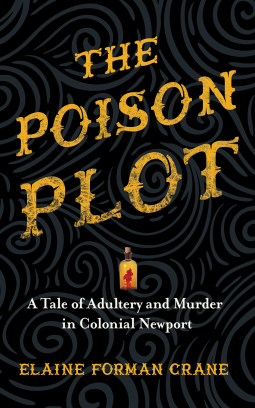
The Poison Plot
A Tale of Adultery and Murder in Colonial Newport
by Elaine Forman Crane
This title was previously available on NetGalley and is now archived.
Send NetGalley books directly to your Kindle or Kindle app
1
To read on a Kindle or Kindle app, please add kindle@netgalley.com as an approved email address to receive files in your Amazon account. Click here for step-by-step instructions.
2
Also find your Kindle email address within your Amazon account, and enter it here.
Pub Date May 15 2018 | Archive Date May 15 2018
Talking about this book? Use #ThePoisonPlot #NetGalley. More hashtag tips!
Description
An accusation of attempted murder rudely interrupted Mary Arnold’s dalliances with working men and her extensive shopping sprees. When her husband Benedict fell deathly ill and then asserted she had tried to kill him with poison, the result was a dramatic petition for divorce. The case before the Rhode Island General Assembly and its tumultuous aftermath, during which Benedict died, made Mary a cause célèbre in Newport through the winter of 1738 and 1739.
Elaine Forman Crane invites readers into the salacious domestic life of Mary and Benedict Arnold and reveals the seamy side of colonial Newport. The surprise of The Poison Plot, however, is not the outrageous acts of Mary or the peculiar fact that attempted murder was not a convictable offense in Rhode Island. As Crane shows with style, Mary’s case was remarkable precisely because adultery, criminality and theft, and even spousal homicide were well known in the New England colonies. Assumptions of Puritan propriety are overturned by the facts of rough and tumble life in a port city: money was to be made, pleasure was to be had, and if marriage became an obstacle to those pursuits a woman had means to set things right.
The Poison Plot is an intimate drama constructed from historical documents and informed by Crane’s deep knowledge of elite and common life in Newport. Her keen eye for telling details and her sense of story bring Mary, Benedict, and a host of other characters—including her partner in adultery, Walter Motley, and John Tweedy the apothecary who sold Mary toxic drugs—to life in the homes, streets, and shops of the port city. The result is a vivid tale that will change minds about life in supposedly prim and proper New England.
Advance Praise
"Elaine Forman Crane knows Newport, Rhode Island, like no other historian. The Poison Plot is
a process of discovery for this author and her readers, and drawing on
her deep research Crane has created a vivid, ‘on-the-ground’ feel to
this fascinating story, in which the characters are rounded and alive."
- John Demos, author of The Heathen School: A Story of Hope and Betrayal in the Age of the Early Republic and The Unredeemed Captive: A Family Story from Early America
Available Editions
| EDITION | Other Format |
| ISBN | 9781501721311 |
| PRICE | $32.95 (USD) |
| PAGES | 264 |
Links
Featured Reviews
 Diane M, Reviewer
Diane M, Reviewer
"malevolent wives, betrayed husbands, and poisonous solutions" Who knew this was going on back in the 18th century? A fascinating, well documented look at life in the 1700s.
 Barbara B, Reviewer
Barbara B, Reviewer
In 1738, in the bustling town of Newport, Rhode Island, Mary Arnold allegedly attempted to murder her husband Benedict, a man considerably older than herself. Her reasons, as revealed in the divorce petition her husband filed in December 1738, included financial gain and her adulterous affairs. Benedict Arnold was certainly sick, and when he recovered he divorced his wife although he died soon after the divorce was granted.
Domestic murders are not rare, in fact, outside of armed conflicts, in most places and times a person is more likely to be murdered by someone he or she knows than by a stranger. An intimate partner is always the person the police look to first when a murder has occurred. There is no reason to believe that this was different hundreds of years ago.
Until the nineteenth century, when a test for the presence of arsenic in a body was developed, there was no sure way of proving someone had been poisoned. Many of the symptoms of poisoning are the same as a number of natural maladies, such as vomiting, bloody stools, and the like. There is really no way of telling how many inconvenient relatives were done away with over the centuries, and we equally do not know how many people were suspected of poisonings of which they were entirely innocent.
Due to the paucity of real information about Mary Arnold’s life, a lot of this book is speculation. That does not make it bad, in fact, it is very interesting, but the reader should be aware of this. The author describes the economic, social and cultural milieu in which Mary Arnold lived. The view of New England during the first part of the eighteenth century is fascinating. If you are curious, as I was, about whether the infamous traitor Benedict Arnold was a member of this family, the author says that he was the grandson of Mary’s husband Benedict by his first wife, Mary being his second.
I thoroughly enjoyed this book, although I am not convinced that Mary Arnold actually tried to murder her husband. Certainly, it is possible, and it seems that the author thinks she may have done it, but if I were on a jury I would have reasonable doubt. Not that I think she was an angel, or incapable of trying to poison her husband, but there just is not enough evidence nearly three hundred years later to say for certain one way or the other. The lack of a specific test for arsenic, and the hints that Benedict may have been suffering from a sexually transmitted disease of long-standing, make the decision impossible, at least for me.
 Michelle C, Reviewer
Michelle C, Reviewer
The Poison Plot: A Tale of Adultery and Murder in Colonial Newport by Elaine Forman Crane is a mystery novel with a fascinating setting. I love the colonial period and have visited present day Newport. As a result, I loved reading this novel. I think historical fiction has the ability to bring the past alive in ways that history books never could. This novel does not disappoint in that regard. I highly recommend this novel to anyone who loves historical fiction. I received a digital copy of this book from the publisher with no obligations. These opinions are entirely my own.
Readers who liked this book also liked:
Jodi Picoult; Jennifer Finney Boylan
General Fiction (Adult), Literary Fiction, Women's Fiction


